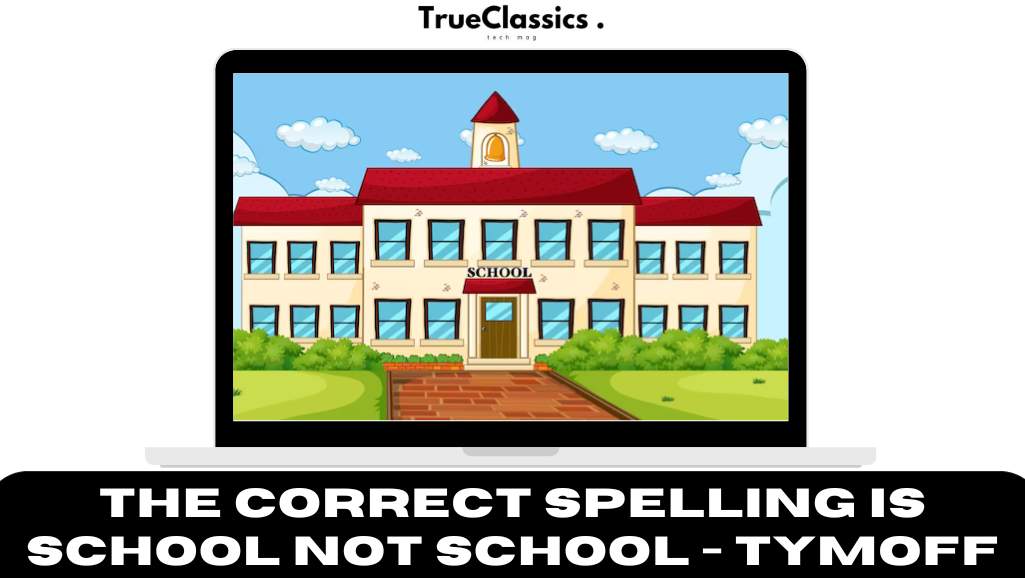Introduction
The correct spelling is school not school. some pe – tymoff, Language is a dynamic and ever-evolving entity, subject to changes and adaptations as it is used in various contexts and by different groups of people. Sometimes, these changes involve wordplay, creative expressions, or intentional misspellings, which can contribute to the fluidity and richness of language. In this article, we will explore the playful use of language through a phrase like “The Correct Spelling is ‘School,’ Not ‘School'” and its implications for the evolution of language.

The Playful Nature of Language
Language is not just a tool for communication; it’s also a means of creative expression and cultural identity. Language play involves using words and phrases in non-standard or whimsical ways, often to achieve specific rhetorical effects or to convey a sense of playfulness. Variations in spelling, such as “school” and “school,” serve as examples of language play, often used for humorous or ironic purposes.
Must Read=Shared joy is a double joy; shared sorrow is tymoff
Understanding the Use of “School” and “School”
The phrase “The Correct Spelling is ‘School,’ Not ‘School'” humorously illustrates a situation where two identical words are presented as if they have distinct spellings. This playful use of language often occurs in written communication, online forums, or social media as a form of satire or parody. It can be a commentary on the sometimes arbitrary rules and idiosyncrasies of language.

Embracing Linguistic Innovation
The evolution of language is a natural and ongoing process. While some might argue that “school” and “school” represent incorrect spellings, it’s essential to recognize that language is not stagnant. New words, phrases, and spellings often emerge, driven by cultural shifts and technological advancements.
For instance, in the digital age, the use of abbreviations, acronyms, and intentional misspellings is common in online communication. “School” and “school” could be seen as a playful response to the abbreviated and informal nature of digital discourse.
The Role of Language in Identity
Language can also serve as a means of establishing group identity and fostering a sense of belonging. In some cases, linguistic innovations, such as “school” and “school,” may be used by specific communities or subcultures as a way to create a distinct identity or to signal insider knowledge.
Preserving the Integrity of Language

While language play is a valuable and creative aspect of linguistic expression, it’s important to maintain a balance between innovation and clarity. Standardized spelling and grammar are essential for effective communication, ensuring that written and spoken language remains understandable to a wide audience.
Conclusion
The playful use of language, as seen in phrases like “The Correct Spelling is ‘School,’ Not ‘School,'” reflects the dynamic nature of human communication. Language continues to evolve as it adapts to new contexts and technologies. While such playful language usage may challenge traditional norms, it also adds depth and nuance to our linguistic landscape. As long as the core principles of effective communication are maintained, language play can be celebrated for its creativity and contribution to the ever-evolving world of words.











